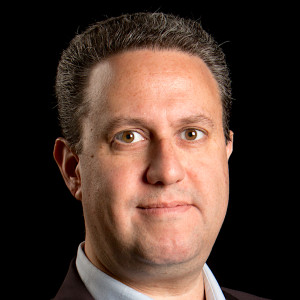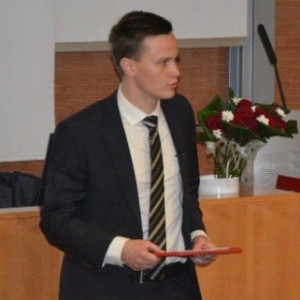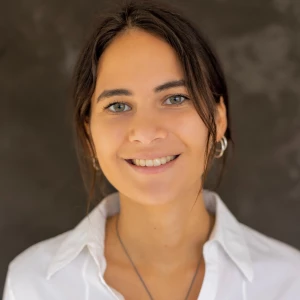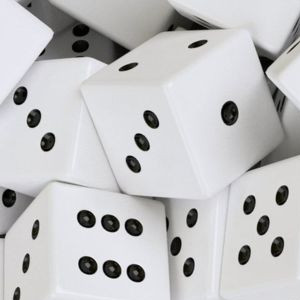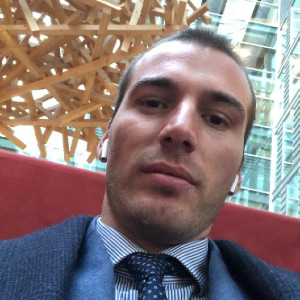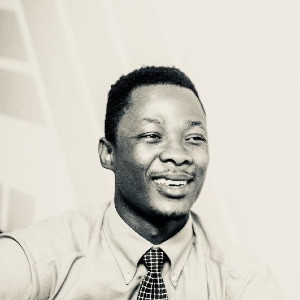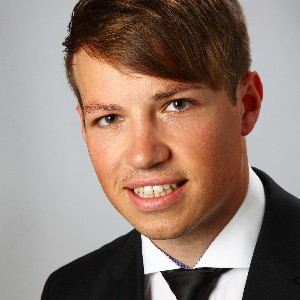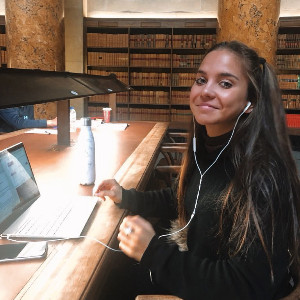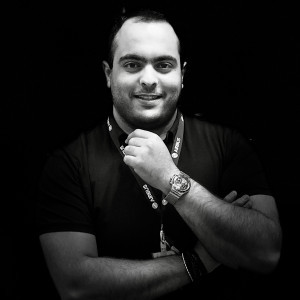How would you answer this question in your Personal Fit interview? Receive feedback on your answer and browse through the Q&As to review the approaches of other applicants and experts.
What do you consider to be your weaknesses?


Hi!
The first thing to recognise is why interviewers ask this question. Ultimately, they want to know how aware you are of your development areas, how you feel about you "weaknesses", and whether those "weaknesses" are red flags :)
I advise my clients to:
- Answer honestly & directly... but not too honestly (this is not a confessional :)). Interviewers can tell if you're being ingenuine and know when you're trying to cover up your weaknesses. For example, "I work too hard" is not a weakness so don't say that. And don't say something that will obviously be a complete deal-breaker.
- Pick a "weakness" that is important for consultants to have. i.e. it should be relevant to the role. Saying you want to be a better investor is not relevant to the role. However, saying you could be better at managing your time is something that is relevant to being a consultant
- Show that you have already worked on this "weakness" and have a plan to improve it even more. Interviewers want just want to see that you have "weaknesses" (they already know you do because we ALL have weaknesses). They want to see that you're the sort of person who is doing something about it to improve yourself because as a consultant, you have to be open to feedback and take steps to address that feedback.
Here's an example of what this might sound like (remember, this is just an example that demonstrates an example that is direct, honest, relevant, and improvement-focused. You will need to cater this to yourself:
- "A weakness of mine is my ability to present confidently in situations where I'm less familiar with the topic. This stems from a complete fear of presenting just a few years ago, which I worked on through the support of my colleagues and by putting myself in situations where I had no choice but to present, get feedback, and then refine and try again. So I feel like I've already come a long way. The work I'd done preparing myself for these interviews have helped me gain additional communication skills to improve how I feel presenting less familiar topics, but it is still an ongoing effort, which I continue to work on."
Hope this helps! Get in touch directly to get some specific practice in.
Best!
coming from an academic research background and into my consulting experience, one of my greatest weaknesses has been knowing how much background research is enough to move on to solving a problem. there is always more papers and more studies to be read, more people to be interviewed, and more data to crunch. in my consulting experience, both budget and time allocations have helped me by constraining this research portion necessarily. in the process, i've learned rules-of-thumb, research methods, analyzation techniques, and most importantly -- the confidence -- to feel comfortable that i've gathered enough evidence/info to move to the next step. this is a skill i seek to continually hone as a consultant

Hi,
With this question, the interviewers will try to understand whether you are someone who is overselling him/herself or is honest who can talk about his weaknesses honestly.
In this question, focusing on hard skills, instead of soft skills would be preferred more. In other words, instead of telling the interviewers that you have weaknesses in team management, teamwork, client management, etc. which are soft skills, you can focus on hard skills such as analytical tools (e.g., Alteryx, Tableau) which are easier to learn compared to soft skills. While saying these, you can also mention that you are looking forward to addressing those weaknesses at the company you are applying to.
Best,
Deniz

I think it's my self-cricicism from time to time. I'm get used to perform high and be productive. But from time to time there are moments, where I need to change priorities, or when something goes not as planned. I'm quite well adjusting in this situations and being flexible. But at the end of the day, when I'm looking on what's I've acomplished, or what I could have done better - I'm being too critical to myself (not considering factors that doesn't depend on me). So I have a mentality, that I have to be strong and to beat anything. But there are definitely moments of time, when I can't perform that good (when I'm sick for example, or when my body is tired). But I'm already working on this, letting myself to accept the factors I can't control.
In situations where I would be nervous going to an interview for a job. I have tended to get shy because I was afraid to face challenges or make mistakes. This has made me appear of having a lack of confidence. As a result, I've learned to be aware of this fact by making a conscious effort to explore things, a way to earn experience, and go beyond my comfort zone and start to believe in myself
I overthink on certain things which makes it hard for me to work on the problem as mind always telling me to rethink everything and I believe this also gave me the quality to be hyper vigilance and self aware which makes me work on problem altogether and over thing as well

A skill I am consistently working on is knowing when to ask for assistance or help. I always strive to be independent when completing my tasks but there are instances where client deadlines are demanding or scheduled tasks may be taking longer than usual, so I want to err on prioritizing deliverables over being too independant.
One weakness I’ve recognized in myself is that I sometimes over-prepare — I tend to spend extra time double-checking things or polishing small details, even when it’s not strictly necessary.
While this comes from a place of wanting to do things well, I’ve realized that in fast-paced environments, efficiency and prioritization are just as important as perfection.
So recently, I’ve started setting time limits for tasks, breaking work into phases, and reminding myself that done is better than perfect — especially when working with deadlines or collaborative projects. It’s still a work in progress, but I’ve definitely improved.
I sometimes hesitate to speak up in unfamiliar or highly competitive groups because I initially underestimate my own knowledge. I've been actively working on this by preparing better, setting small participation goals, and focusing on asking thoughtful questions. Over time, this has helped me because more confident and engaged in group discussions.

Sometimes, I am to precise and think twice and three times about the risks when taking a decision. Just do the things.
Ich habe Problem damit, auf Leute im Unternehmen zu zugehen und mir ihre Zeit zu "klauen" um mir weiterzuhelfen.
Meine Schwächen sind Perfektionismus und ich neige dazu alles selbst machen wollen und anstatt frühzeitig nachzufragen.
Manchmal denke ich zu lange nach bevor ich spreche, da ich möchte, dass meine Antwort perfekt ist.
Ich gehe Konflikten gerne aus dem Weg.

overanalyzing situations , its both a blessing and a curse but i have been tying just the right balance in between
Perfectionist. I am results driven and I like to ensure those results are accurate and as complete as possible. this can be time consuming.
Fortuntly there is a quick fix, prioritizing can help deliver with the right detail amount


There are some weaknesses that i recognize that i have woth in me which are firslty sometimes I overcommit and the other is i trust people easily

What do you consider to be your weaknesses?
Hard skills:
- I have not learned enough programming and analytical tools, while I feel it is an increasingly important skill to have.
- Therefore, I took a first-class of R during my masters and now I enrolled in an 8 week Harvard online course called "CS50 introduction to computer science"
- Further, I hope to learn a lot in this position about analytical tools in your company.
Soft skill
- I tend to take up to many projects at once and get into time management problems.
- Therefore, I started to create priority lists and to write down my deadlines.
- If possible I created my own deadlines, before the actual deadline.
- Especially prioritising helped me to improve a lot.
My toughest weakness is my difficulty with maintaining deadlines. In the past, I often had the difficult task of organizing deadlines and would often miss class assignments. To counter the problem I started keeping a strict calendar with all my deadlines so to improve keeping track of them and I soon ran into another problem. While I was aware of my deadlines often reminders would warn me some moments before and when I handed in work all my work would be rushed. to further improve upon my system I decided to break up tasks based on priority and size of tasks. I would also set early due dates for my work to ensure that I had plenty of time for warning and to make sure that I wouldn't be rushing any important work. As a result, I have seen my time management improve along with my work quality. While I still face issues with time management and keeping track of deadlines I am much better managed and I feel now better equipped to deal with any situation I may face.
I lose interest in a career where no managerial vision is apparent or clearly communicated to employees. Repetitive routine work over years will be a strong reason for me to leave.
I tend to have a very structured approach with work, which could be seen as being too rigid for others. I have been working on that through including others in terms of planning methods to solve a problem.
I take time to understand the problem from grassroot level, in depth analysis, it is quite difficult to respond quick. I have been working with seniors and experienced collegues to understand the similarties in repetitive problems and respond quick without much in depth analysis.
Providing adequate detail for different levels of employeed at the client or within the firm e.g. partner or the clients CEO needs different granualrity on a presentation than associate. I'm working on finding "guidelines"/develop a feeling for what is important for the different levels.

I am not the best at math, but once I really focus on it and practise it repeatedly, I can get pretty good at it
I do not like to call it a weakness but rather an area of development. If I am to name one, I would say that I sometimes take longer time than others to trust someone else's work. This is a result of several experiences I had in university where my grade was affected because of other group members who did not take the assignment seriously. I do realize that this is not always the case and I am working towards improving this in order to become a better team player in a shorter time.

Over the years, I have realized that in my eagerness to take up interesting tasks, I tend to overcommit and then have to adjust my work-life balance to live up to those tasks.
As remediation, I have started forcing myself to ask the questions "Is it feasible to do it in the given timeframe?", "What value does it add?" and the like, before committing to a task. This has helped me manage my time better, prioritize the tasks better and devote 100% to each task I undertake.
First of all, I cannot work effectively on a day-to-day routine tasks. I need a challenge and I seek for satisfaction of my ambitions. I also like to lead, but not to be leaded.

I can sometimes be over-optimistic and lose interest once the first enthusiasm is gone.
I stress about my productivity a bit more than necessary or so I feel. I have tried various methods to be as productive as I can. I have tried journal writing, different productivity apps, different techniques and those things do push me to the limit, but never over it, and I think the main reason for that is me setting some very high goals for myself.
I still am trying to reduce that habit of mine, but it still is an ongoing process.

I am highly enthousiastic which might cause me to take on too many things at the same time.

... being undecided about my personal future since I see too many fascinating options

An innate quality of mine which I consider to be my weakness is the fact that I cant say no to people and work. There was a time wherein I was interning at PwC as a Consultant and this was the first internship I had ever done. So, I had this urge to impress all the managers and seniors, thus I ended up taking more work than I could deliver and underestimating the delivery time. This also led to some serious consequences wherein, I couldn't meet my manager's expectations with my promised words and thus ended up disappointing the whole team. To improve this weakness of mine, now I try to list down the tasks for the week as well as the day for myself and assign a priority vs urgency number for each of the tasks assignment to me. Based on that as well as the difficulty of the task, I decide the amount of time it would require me to deliver the tasks, and also decide whether I would be able to take more work on my plate. This strategy has been working efficiently so far for me and has been helping me to turn this weakness of mine into an opportunity of strength with a little bit of analysis and data backing.

I tend to get bulked down in the detail of problems. I realise now that sometimes a high level view is suitable

My greatest weakness is creativity. There are too many ideas on the mind, you cannot finish them all in once


ich bin manchmal etwas gutgläubig, wenn man im Team arbeitet ist das nicht sehr einschränkend aber bei Projekten in Eigenverantwortung muss ich daran arbeiten

I was told that I can tend to get defensive when given "constructive critisim" (which is really negative feedback). Maybe that is due to my high sense of competitveness that I've had since I was a child and so always aimed to make no mistake.
I understand that in an industry like consulting, my growth and development will come from receiving constant feedback and using it to improve my performance and especially in these areas. I work on this weakness by constantly asking my performance and engagement managers for feedback, noting it down, coming up with ways to improve in this area, and making a goal to not have the same point noted twice.
I have a hard time conveying information in a structured manner. I have been working on that by trying to give more concise and to-the-point answers to questions, among other things.


Sometimes I am too stubborn, but growing as a person and in my career experience, I understood the importance of taking a step back and listen to others when comparing ideas

I would say one of my weaknesses is getting so caught up while solving a problem that I forget to circle back to the initial challenge from time to time and ensure I'm on track. For example, last year I led my team to organize a year-end event for 300 of our most important stakeholders. I divided my coworkers into working groups and assigned goals to each of those, and for about a month, everything was on track and we were planning extremely efficiently. Two weeks before the event I realized I'd forgotten one major aspect in the project's plan- we needed to prepare personalized thank you gifts for each guest. In the end we were able to scramble and complete that task while managing the upcoming event, but had I taken more time initially to lay out a comprehensive plan, the last minute scramble could've been avoided.
That being said, I can say that the process of studying for case interviews has really instilled in me this importance.
1. too confrontational/too direct. sometimes colleagues appreciate that, but I learned that other times a job requires more diplomacy.

Ich bin ein schlechter Lehrer. Mir fiel es zum Beispiel zunächst schwer, meine Aufgaben an eine Praktikantin zu deligieren, bis ich mir ein strukturiertes Konzept überlegt habe, was sie für welche Aufgabe wissen musste und wir schrittweise daran gearbeitet haben.
The two areas I consider to be my weaknesses are -
Paying too much attention to details and oral communication.

My biggest weakness is my ongoing ambition to achieve more. As soon as I achieved something, I constantly want to achieve something higher or better so that eventually I am never satisfied with what I am achieving.


I am an impatient person that sometimes needs to finish things ASAP and sacrifices quality for efficiency.

i feel like i have high standards for myself, which has come off as demanding at times. i've worked on this by trying to really get into other people's shoes to understand where they're coming from. by doing this, i've unlocked something that i feel like i'm actually really good at - coaching and mentoring...but this all stems from recognizing that i can be demanding and short-circuting that trait

I do beleive I tend to be unpatient, and the timeline in my head is often shorter then in reality.




I often struggle with being hyperaware of authority. I currently work at a firm where the hierarchy is very visible and it is difficult to speak up to or disagree with a more senior member of the team. However, I have been working on how to know the best times to have the discussion and how to tactfully voice my opinions without stepping on toes.


I generally tend to communicate too less. When I was a project leader of a students organization i often thought that saying and explaining things once is enough if there are no questions left. Hence often tasks weren't done properly or sloppy. I realized that when I give orders or solve problems by my own it is important to give people more insights in the way i think behind. I think It is important to ask people proactive to their understanding of what I tried to communicate. I think that my communication improved much in the last years but sometimes I got the feeling that I could even communicate more.
If I were to state one of my main weaknesses, it would for sure have to be the fact that I get bored if I am to do easy and repetitive activities for a long period of time. This is indeed one of the reasons why I decided that management consulting could be an amazing fit for me given the varied, high-intensity workload of management consultants.


One weakness I would say are my high expectations towards my team members and colleagues. I am a perfectionist, thus I expect dedication for the project and very good results from those in my team.


One of my weaknesses is the fact that I don't particularly appreciate repetitive and simple jobs as I like my mind to be constantly challenged. To deal with this weakness I usually try to make the easiest and more repetitive work more fragmented, giving myself goals in terms of time. In this way I become more motivated
Time management is one of my biggest weaknesses, but I'm slowly turning that around. When I have a lot of concurrent projects, I tend to work on them all at once and not fully devote myself to one at a time, even though in the end they usually get done. To fix that, I've started to set better priorities for myself, as well as apply more rigorous framework of how to get each project done most efficiently.

I find that I lack experience in delgating tasks in a professional setting, while I have had experience in undergrad assigning roles in group settings, I have yet to act in a managerial capacity

Sometimes I can be a little bit more assertive.
However, i am working on this, as I am president of a student association.


I think my greatest weakness is my lack of expierence in business but i think it also serves as the greatest opportunity for me. I am a fast and willing learner and i am sure that if i have the chance i will learn the necessary things in no time. This is one of the reasons i chose your company, because it offers me the steepest learning curve and i am eager to learn.

I can be very forcused on specific tasks sometimes and the need to see them through and achieve the best metrics. This can somettimes mean I see things from a narrow lens, hence missing the wider picture, which can weaken my results as this doesn't account for all contexts necessary. For example, in sales, where one focuses on hitting the targets and doubling revenue without taking into account the cusomer lifetime value and what's best for their individual business needs.

I enjoy figuring out the details of things and getting to know how they work in detail. This sometimes leads me to get bogged down when trying to understand some arcane details that are interesting but not the Nr. 1 priority for understanding the big picture. In some cases this can be a strength, but in other cases it slows me down and causes me to lose focus. What helps for me is talking about my project with colleagues or superiors, because this usually gives me the necessary confidence to say "this is beyond the scope of what we're doing"
Delegating tasks to others is something that I identify as an area of improvement in myself. Since I feel the need to take it all upon myself, I sometimes get overwhelmed.

Hello!
On top of the insights already shared in the post, next week will be pusblished in PrepLounge´s Shop material related.
In concrete, the "Integrated FIT guide for MBB". It provides an end-to-end preparation for all three MBB interviews, tackling each firms particularities and combining key concepts review and a hands-on methodology. Following the book, the candidate will prepare his/her stories by practicing with over 50 real questions and leveraging special frameworks and worksheets that guide step-by-step, developed by the author and her experience as a Master in Management professor and coach. Finally, as further guidance, the guide encompasses over 20 examples from real candidates.
Hope you find it useful!

Language is very important when you approach this question. The real reason why this question was created in the first place is to test for your self-awareness.
- A weakness is not a weakness (no one is asking you to state your criminal or ethical weakness here), it is something that you are not good at but it is important for your work. No matter what it is, you have to explain to the interviewer how you are fixing it.
- Don't go absolute on your weakness, instead be relative to something. Don't say "I am bad at managing my time" instead say "I wish I could be better at managing my time".
- The Language you use is more important than the weakness itself.
- Show how the weakness imparts your team, and not just you.
- Show how you are mitigating against it.
- Ask your interviewer if he would like to listen to an instance where you applied those mitigations to prevent the weakness from messing you up.
I hope this helps.

Remember, the key here is two-fold:
1) Your weakness isn't really quite a weakness in the right context (i.e. I get too excited about things and forget to wait for my team, I get really committed/devoted quickly and sometimes forget to take care of myself, etc.)
2) You've learned (from some interesting experience) how to tame the weakness. I.e. you know when it happens, why it happens, and you have methods to address it...so, ultimately it's not even a thing that really happens anymore.

My weakness is my impatientness, which sometimes leads me to be too fast with my answers or conclusions. I also tend to not document my work enough, which then causes me to repeat tasks multiple times


One of my weaknesses would be sometimes taking on more than I thought I would be able to handle. I generally like to keep busy and to challenge myself, which is great, but I have been in situations in the past where this has led to poorer quality of work. I'm working on time-management and being able to assess how much I can realistically handle at any one time.





I tend to give long-winded answers with a lot of background information, which is often more than what is asked for. I am now actively trying to keep my answers shorter and lead with what is actually asked for before providing any background.
Sometimes its coordinating correctly with all sides/members of a team. I am currently improving this skill and have taken long strides in terms of progress in it.
Nein zu sagen und Arbeitsaufwand richtig einschätzen zu können. Ich arbeite daran indem ich mir Sturkturpläne mache und so klar darlegen kann was ich leisten kann und was zu viel wird.


My english spelling is not the best, but I try to work on this by listening to podcasts, series and similar in english

I am fighting my temptation to indefinitely extend the scope of analysis if it adds value for the client, The reason I consider this a weakness is that it puts more work to be done by the team.

I need to remind myself to continue to keep an open mind on forming opinions until I have all the facts
I expect things to go well and be perfect, so I am trying to embrace imperfectness and see troubles as an opportunity to learn


Feel free to contact me, then we can have a call on this topic :)

- time management because of too many projects I'm working on in the same time --> I created deadlines before the deadlines
- From reasearch : should know when it's enough to stop gathering data and reading articles
- Because of my researcher background I tend to have a very structured approach to work and tend to be too rigid for others --> I have been working on that through including others in terms of planning methods to solve a problem
I am impatient because I dislike wasting time, this has in the past led me to get frustrated with those I was waiting on. I realised that this is counterproductive and it is better to be more understanding by putting yourself in other peoples position to understand why they are late/delayed/
I tend to be harsh on myself to a fault. Pushing myself to a point of exhaustion. I have been working on it to better utilize my personality rather than to change it. I would like to believe that I have it under control compared to five years ago and that I have taken advantage of it through these years.

I consider Procrastination to be my weakness. I recognize my weakness and to overcome, I try to organize my day, make a routine and stick to it. I reward myself when I complete the routine.



Procrastination! I could become a procrastinator... in order to avoid that I did the following:
- Action tracker and priority list
- Key focus of the week and day
- Start with smaller tasks
- Create self accountability by scheduling touchpoints and milestones with others so I force myself to start early
I find hard to change my opinion when I find supporting evidences, but it happens sometimes that you miss a point or do not look at things from a 360 degrees perspective
My weakness is my tendency to be too ‘complete’. I can absorb a lot of information in one shot and need to make strong effort to let go of the ‘less relevant' information, since relevancy can be seen in many parts of info.
- It can be challenging to maintain a healthy WLB.
- I focus too much on the details. The unseen details that people do not perceive.
- I can have a hard time letting go of a project I am passionate about.. drawing the line.

I am in a phase where I am still flexible in my development, thus I try to “fix” every weakness I discover in myself. But what definitely sticks is the fact that I get bored soon and that I only enjoy the first 80% in every project and I am not too commited to detail. Though this seems to be good for consulting, I have heard
1. Once I am strongly convinced of any opinion, it is hard for me to let go, if my counterpart tries to convince me of a different opinion only on an emotional level and this is not based on clear arguments.
2. I am impatience when it comes to deadlines that are not met.
3. For me it feels hard to accept, when other people i work with, do not have the same high motivation und long breath to achieve a set goal.

Soft Skill: It was public speaking or taking initiative in front of people that I don’t and speak up. Doing many presentations during uni, pushing myself to talk or to take initiative to present or do exercises in class, presenting during last work in front of experts helped me a lot to understand that there is no reason to have fear. So lately, I did presentation in my German class and I paid attention to my body language and the way I presented it was confident. That even my classmates and supervisor noticed it and congratulated me for doing well.
Hard Skill: Working last experience in consultancy mainly in transportation sector, helped to learn more about consultancy, work internationally, interact with client and learn closely from my manager. However, for me I wanted to learn more about energy with consultancy. So, I knew that I need to study more about RE Management so I applied for scholarship and here I am finishing necessary technical needed skills and Finally I hope that I can develop more what I learned through this opportunity.


















